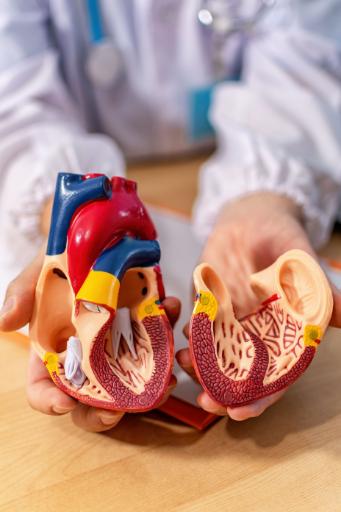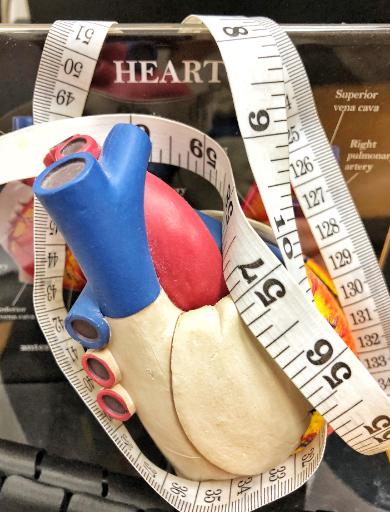Cardiovascular collapse is a life-threatening condition that occurs when your heart or blood vessels fail to function correctly. It can cause symptoms such as chest pain, shortness of breath, fainting, or shock. It can also lead to serious complications, such as cardiac arrest, stroke, organ damage, or death.
Cardiovascular collapse can be caused by various factors, such as heart attack, arrhythmia, valve disease, infection, trauma, bleeding, dehydration, or allergic reactions. It can also be triggered by underlying conditions, such as diabetes, hypertension, obesity, or smoking.

Fortunately, cardiovascular collapse can be prevented and treated with advanced technology and care. In this blog, we will explore some of the latest innovations and practices that can help you improve your cardiovascular health and avoid cardiovascular collapse.
What is Advanced Technology for Cardiovascular Health?
Advanced technology for cardiovascular health is a term that refers to the use of state-of-the-art devices and procedures to diagnose, treat, and prevent cardiovascular diseases. These include:
– Cardiac imaging: This involves using high-tech machines, such as ultrasound, MRI, CT, PET, and SPECT, to create detailed pictures of your heart and blood vessels. These pictures can help doctors identify any problems, such as blockages, clots, or damage, and plan the best treatment for you.

– Cardiac intervention: This involves using minimally invasive techniques, such as angioplasty, stenting, ablation, or implantation, to open up narrowed or blocked arteries, correct abnormal heart rhythms, or replace faulty heart valves. These techniques can improve your blood flow, reduce your symptoms, and lower your risk of complications.
– Cardiac surgery: This involves using advanced methods, such as robotic surgery, hybrid surgery, or transcatheter surgery, to perform complex operations on your heart or blood vessels. These methods can offer more precision, accuracy, and safety than traditional surgery and reduce your recovery time and scarring.
– Cardiac rehabilitation: This involves using a comprehensive program of exercise, education, and counselling to help you recover from a cardiac event, such as a heart attack or surgery, and improve your cardiovascular health. This program can help you regain your strength, endurance, and confidence and prevent future problems.
How Can You Improve Your Cardiovascular Care?
While advanced technology for cardiovascular health can offer many advantages, it is not enough to ensure optimal cardiovascular health. You also need to improve your cardiovascular care, which is the quality and effectiveness of the services and support that you receive for your cardiovascular health. You can improve your cardiovascular care by:

– Choosing a qualified and experienced cardiologist: This is a doctor who specializes in the diagnosis and treatment of cardiovascular diseases. A good cardiologist can provide you with accurate and timely diagnosis, personalized and evidence-based treatment, and ongoing and compassionate follow-up. You can find a cardiologist by asking for referrals from your primary care doctor, family, friends, or online reviews. You can also check the credentials, ratings, and feedback of the cardiologist on websites such as Healthgrades, WebMD, or RateMDs.
– Following your treatment plan: This is a set of instructions and recommendations that your cardiologist gives you to manage your cardiovascular condition. It may include taking medications, undergoing procedures, attending appointments, monitoring your symptoms, and reporting any changes. Following your treatment plan can help you achieve the best possible outcomes and avoid complications. You can follow your treatment plan by keeping track of your medications, appointments, and test results, asking questions, clarifying doubts, and seeking help and support when needed.

– Seeking a second opinion: This is the process of getting another evaluation or consultation from a different cardiologist about your diagnosis or treatment. Seeking a second opinion can help you confirm or challenge your diagnosis, explore alternative or additional treatment options, and gain more confidence and satisfaction in your care. You can seek a second opinion by asking your cardiologist for a referral, contacting another cardiologist directly, or using online services such as Second Opinion, Grand Rounds, or Best Doctors.
How Can You Prevent Cardiovascular Collapse?
The best way to prevent cardiovascular collapse is to prevent cardiovascular diseases in the first place. You can do this by adopting a healthy lifestyle that includes:
– Eating a nutritious diet: This means consuming a variety of foods that are rich in fibre, protein, healthy fats, vitamins, minerals, and antioxidants. These foods can help you lower your cholesterol, blood pressure, and blood sugar levels and prevent inflammation and oxidative stress. Some examples of heart-healthy foods are fruits, vegetables, whole grains, nuts, seeds, legumes, fish, poultry, and low-fat dairy products. You should also limit your intake of foods that are high in saturated fat, trans fat, sodium, sugar, and refined carbohydrates. These foods can increase your risk of obesity, diabetes, and cardiovascular diseases. Some examples of unhealthy foods are fried foods, processed meats, baked goods, candy, soda, and alcohol.

– Exercising regularly: This means engaging in physical activity that raises your heart rate, strengthens your muscles, and improves your flexibility and balance. Exercise can help you burn calories, lose weight, lower your blood pressure and cholesterol levels, and enhance your mood and energy. It can also reduce your stress, anxiety, and depression, which can negatively affect your cardiovascular health. The American Heart Association recommends that you get at least 150 minutes of moderate-intensity aerobic exercise or 75 minutes of vigorous-intensity aerobic exercise per week, along with strength training at least twice a week. Some examples of aerobic exercises are brisk walking, jogging, cycling, swimming, and dancing. Some examples of strength training exercises are lifting weights and doing push-ups, squats, lunges, and planks.
– Managing your stress: This means finding healthy ways to cope with the challenges and pressures that you face in your personal and professional life. Stress can trigger your body’s fight-or-flight response, which can raise your heart rate, blood pressure, and cortisol levels and impair your immune system. This can increase your risk of cardiovascular diseases, as well as other health problems, such as insomnia, headaches, digestive issues, and infections. Some effective ways to manage your stress are practising relaxation techniques, such as deep breathing, meditation, yoga, or tai chi, engaging in hobbies, such as reading, gardening, or playing music, spending time with your family and friends, seeking professional help, if needed, and avoiding caffeine, nicotine, and drugs, which can worsen your stress levels.
– Quitting smoking: This means giving up the habit of inhaling tobacco smoke, which contains thousands of harmful chemicals, such as nicotine, tar, carbon monoxide, and arsenic. Smoking can damage your blood vessels, increase your blood pressure and heart rate, reduce your oxygen supply, and cause blood clots. This can increase your risk of cardiovascular diseases, such as coronary artery disease, heart attack, stroke, peripheral artery disease, and aneurysm. It can also increase your risk of lung cancer, chronic obstructive pulmonary disease, and other respiratory diseases. Quitting smoking can improve your cardiovascular health and overall well-being. You can use various methods to quit smoking, such as nicotine replacement therapy, medication, counselling, hypnosis, or acupuncture. You can also seek support from your doctor, family, friends, or online communities.
Conclusion
Cardiovascular collapse is a serious condition that can endanger your life. However, you can prevent and treat it with advanced technology and care. You can also improve your cardiovascular health and prevent cardiovascular diseases by adopting a healthy lifestyle. By following these tips and resources, you can achieve your fitness goals and enjoy a long and healthy life.







